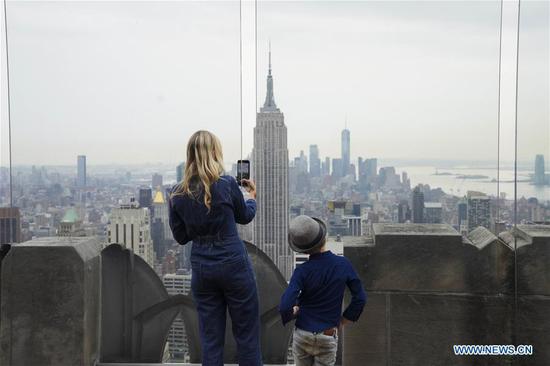
Retailers in China are revamping their marketing strategies to cater to the diverse demands of consumers, especially for those who search uniqueness and social interactions in their purchases, as the sector looks to emerge from the shadow of the novel coronavirus epidemic, said experts.
Rose Ling Ling, a Shanghai-based designer apparel brand, is banking on new channels such as livestreaming and social media word-of-mouth to boost growth, after its sales languished in the earlier part of the year due to the epidemic.
The company decided to change tack as female professionals, its key target audience, started showing a preference for originality in designs and product promotions, said Shen Ruihua, the marketing and sales head for Rose Ling Ling's third-party channels.
"Customers aspire for something not necessarily exclusive but unconventional. This is when influencers kick in, with consumers putting a lot more trust in online key opinion leaders in their decision-making journeys," Shen said.
Consumption is set to steadily surge as people pursue a sense of certainty since going through the pandemic, wishing to "reorient themselves with a sense of certainty, regain control, and establish a new order," said Jin Liyin, a marketing professor at the School of Management at Fudan University in Shanghai.
Rose Ling Ling works with Xiaohongshu, China's highflying lifestyle app similar to Instagram. Adopting a user-generation content model, the platform manages to attract some 100 million users who are exposed to lifestyle-sharing notes 8 billion times per day, it has arguably transformed into a crucial channel for purchase decisions.
Last month, Xiaohongshu unveiled a string of supportive measures to bolster the development of notably indigenous brands, including zero entrance fee, online traffic funneling, as well as connecting merchants with influencers with sizable followers.
"I believe future-facing brands are those that stand to advocate their unique ways of life," said Mao Wenchao, chief executive of Xiaohongshu.
Jeans maker Simple Pieces is leveraging the word-of-mouth trend to promote its products on Xiaohongshu, and has been attentive to customer feedback via the site that eventually leads to product modifications.
"This is how we are able to 'co-create' with customers, because nowadays customers have this strong impulse to share," said Simple Pieces co-founder Lou Yilin.
The pursuit of emotional resonance and connection is moving beyond virtual territory to brickand-mortar stores. Xintiandi Plaza, a commercial property in downtown Shanghai developed by Shui On Land, has debuted a talk show studio as its latest attempt to tap into the surging shoppertainment fashion.
The introduction of FunFactory, which hosts live talk shows popular with the younger mass, is the latest addition of social elements to the iconic Xintiandi complex, said Chen Chun, commercial director overseeing several properties and also head of content innovation department at Xintiandi.
"Following the novel coronavirus-related lockdowns, the dominant sentiment of shoppers boils down to a sense of 'reborn'," Chen said. "What we aim for is to harness people's needs to combine spatial experiences with consumption, which constitute a core pillar for business revival and the sustainable development of commercial spaces."
Over 90 percent of Shui On-operated lands in Shanghai have now resumed business, Chen said, adding that two malls had even registered up to 20 percent year-on-year growth during a promotional campaign in July.
The Xintiandi Plaza operates Social House by Xintiandi, which is a multifunctional social space infused with the concept of New Retail, or the merger of online to offline shopping using a variety of technologies.
To quench the growing thirst for immersive shopping experiences, Chen said the mall is incorporating elements like design, social activities and gourmet offerings, which serve to "reinvigorate the interplay among people, product and places".
She said the pandemic is propelling business entities to utilize digital capabilities, interpret the data, and make faster and more accurate decisions.
"Customers are no longer categorized in traditional silos like age groups or professions, but the true 'social circles' they belong to," she said. "The troves of data are critical to constructing content and marketing to make our offerings unique."


















































